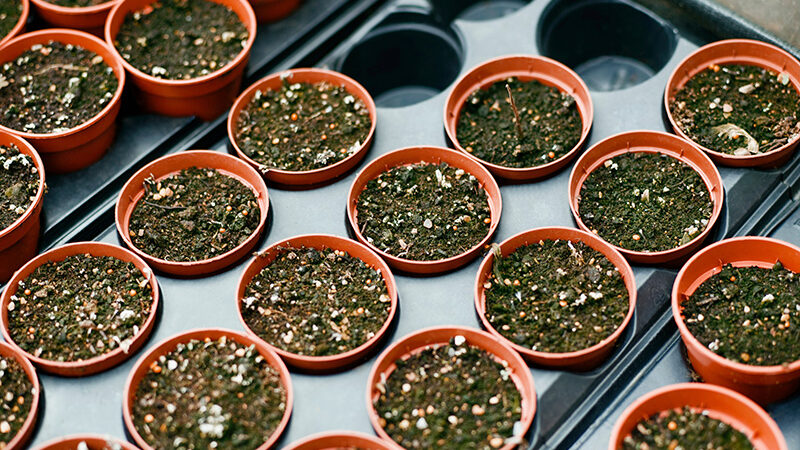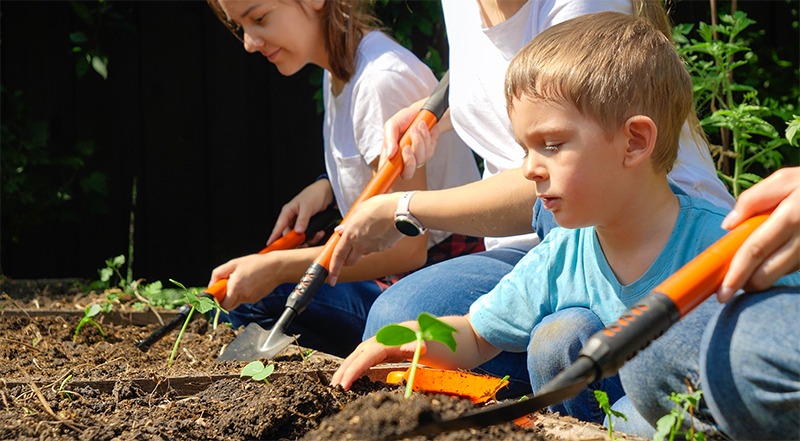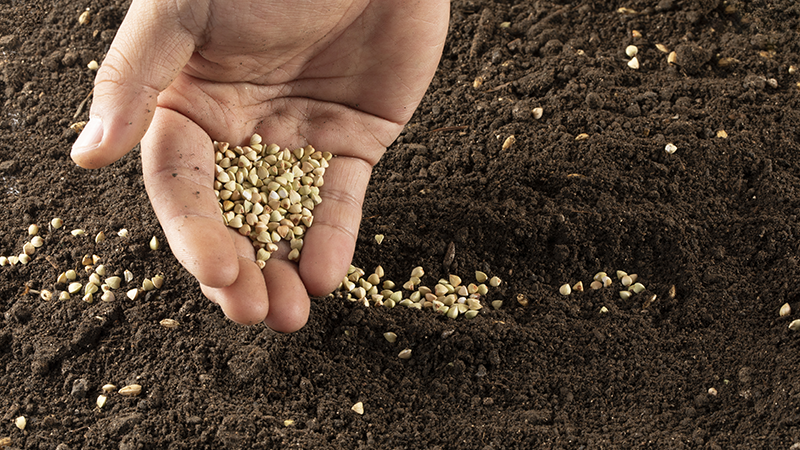What is Germination?
Germination is the process of a seed sprouting into a plant. It involves the breaking down of the seed coat, which allows water and oxygen to enter the embryo.
The germination of seeds has been an important part of agriculture for centuries. People have been trying to find ways to improve germination rates and increase yields since ancient times.
Germinating seeds is not as easy as it sounds. There are many factors that affect how well a seed will grow into a plant, such as temperature, moisture, soil quality, and genetics.

6 Steps: How to Grow Plants from Seed
Germination is the process of a seed beginning to sprout and grow. Seeds are planted in soil or compost, and are covered by a thin layer of soil or compost. Seeds need moisture, warmth, oxygen, light, and nutrients to germinate.
When you want to grow plants from seed indoors, you should use an indoor garden that provides the right conditions for seeds to germinate properly. There are many ways you can do this, such as growing plants in pots on top of a window sill so they receive sunlight during the day as well.
So you have a few seeds and want to grow your own plants?
Here’s how to germinate them!
Steps of Germination of Seeds
Step 1
Make sure your seed has enough water and that it is not wet or damp in the packet.
Step 2
Place the packet on a paper towel and place it between two plates or something to weigh the seeds down so they don’t dry out too quickly.
Step 3
Open the packets, separate each seed, and place them in a small pot or on a piece of moistened paper towel.
Step 4
Cover the seeds with the paper towel, or with damp cloth or paper towels that are moistened, and let them sit for 24 hours.
Step 5
After one day wait to see if any seeds have germinated and then plant them in soil or put them in an envelope of soil and put it in a plastic bag and put it in the fridge for a few weeks.
Step 6
To plant, simply seed the soil and they’ll grow!
What are the Benefits of Germination of Seeds?
Germination of seeds is the process of a seed sprouting and beginning to grow when it comes in contact with moisture, oxygen, and the right temperature. It is a natural process that happens in soil or compost.
Germination of seeds has many benefits. It helps plants grow faster. This also allows them to produce fruits and vegetables earlier than usual. Germinating seeds also helps plants to avoid diseases and pests as well as fight against weeds that might be competing for nutrients in the soil.
The benefits of germination are numerous, but some major ones include:
- Germinating seeds can help plants develop better root systems, which can improve their ability to absorb water and nutrients from the soil, which will help them survive during dry seasons or periods where there is not enough rain for plant growth.
- Germination of seeds allows plants to better fight off diseases and pests as well as weeds that might be competing for nutrients in the soil.
- Germinating seeds can help plants produce fruits, vegetables, and flowers earlier than usual.
The Germination of Seeds for Kids

How to Start a Seed Germination Experiment with Your Kids
Seed germination is the process by which plants like flowers and vegetables begin to grow from the seed. It is a natural process that occurs in soil, water, or air. It is an essential step in the life cycle of plants.
This project will teach children about how seeds start to grow. They will learn what happens when seeds are planted in soil or water and how long it takes for them to sprout and become plants. They will also learn about variables such as temperature, moisture, oxygen levels, etc., that affect the growth of seeds.
Seed germination experiments are great for science projects because they teach kids about science without any hassle or hassle. Kids can just plant their seeds and watch them grow!
What are the Benefits of Starting a Germination of Seeds Project for School?
Starting a germination of seeds project for school is an easy way to teach kids about biology and ecology. It also provides an opportunity for students to learn about the natural world.
A science project can be a great way to get students excited about science and learning, but it can also be difficult to find time for one. A germination of seeds project is a great way for students to explore the natural world without having to worry about finding time in their busy schedules.
Germination of seeds is a project that teaches students how plants grow from seeds and how they are affected by environmental factors such as temperature, light, water, etc.
How to Start a Plant From Seed

If you want to start your own plant from seed, it is important to know how the germination of seeds works.
First, you need to dry out the seeds so that they are not moist. You will then need to soak them in water for about 24 hours before you can plant them.
Next, you will need to take care of the soil in a pot or container and plant the seeds, as well as add some soil around them.
Then, it is important that you keep the soil moist by watering them regularly.
What are the Best Ways for Growing Plants from Seed?
The best way to grow plants from seed is to germinate them and then plant them.
Germinating seeds: To germinate seeds, you need a pot with soil that has been prepared for planting. Put the seeds into the soil and cover them with 1-2 inches of soil. Keep the pot in a warm, dark place until they sprout.
Best methods for growing plants from seed: The best way to grow plants from seed is to start them in pots and then transplant them outside after they have grown about 2 inches tall.
Start Growing Plants From Seeds Right Now!
There are many benefits of starting your own garden, but the most important one is that you get to learn about growing plants and the science behind it.
When you grow your own plants from seeds, you will not only be able to experiment with different types of plants and flowers, but also reap the benefits of fresh produce.
